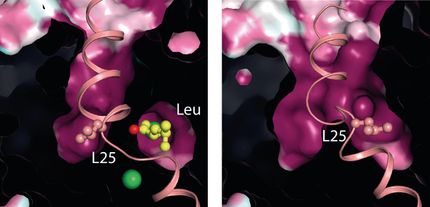UCI researchers find new way to fight cocaine addiction
Advertisement
UC Irvine pharmacological researchers have discovered that blocking a hormone related to hunger regulation can limit cocaine cravings. Their findings could herald a new approach to overcoming addiction.
Led by Shinjae Chung and Olivier Civelli, the study identified how the melanin-concentrating hormone works with dopamine in the brain's "pleasure center" to create an addictive response to cocaine use. The researchers further found that blocking MCH in these brain cells limited cocaine cravings.Dopamine is a neurotransmitter essential to the normal functioning of the central nervous system. It also is associated with feelings of pleasure and is released in the brain during eating, sex and drug use. Heightened levels of the neurotransmitter have been detected in the nucleus accumbens of drug addicts.
The study is the first to detail the interaction of MCH and dopamine in cocaine addiction and show that it occurs in the nucleus accumbens, a portion of the forebrain believed to play an important role in addiction and feelings of pleasure and fear. Study results appear in Proceedings of the National Academy of Sciences .
"This discovery indicates that MCH is a key regulator of dopamine in a brain area associated with both pleasure and addiction," says Civelli, the Eric L. and Lila D. Nelson Professor of Neuropharmacology. "We believe that efforts to target MCH may lead to new treatments to break addiction to cocaine and, possibly, other drugs, like amphetamines and nicotine."
In mammals, MCH is involved with the regulation of feeding behavior and energy balance. High levels of the hormone can intensify feelings of hunger, and researchers worldwide have been seeking compounds to lower MCH for potential use in the treatment of obesity. Chung and Civelli believe MCH works in the nucleus accumbens to increase the pleasure of eating. They found that dopamine signaling rose when MCH amounts increased in those brain cells.
The UCI researchers found that test mice conditioned to develop cocaine cravings had increased amounts of MCH and dopamine in their nucleus accumbens. When experimental compounds blocking MCH proteins were administered, those cravings disappeared. In addition, Chung and Civelli discovered that mice lacking key receptors for MCH exhibited significantly fewer cocaine cravings. They hope to learn whether modulating MCH might be beneficial in treating other dopamine-related disorders as well.
















































